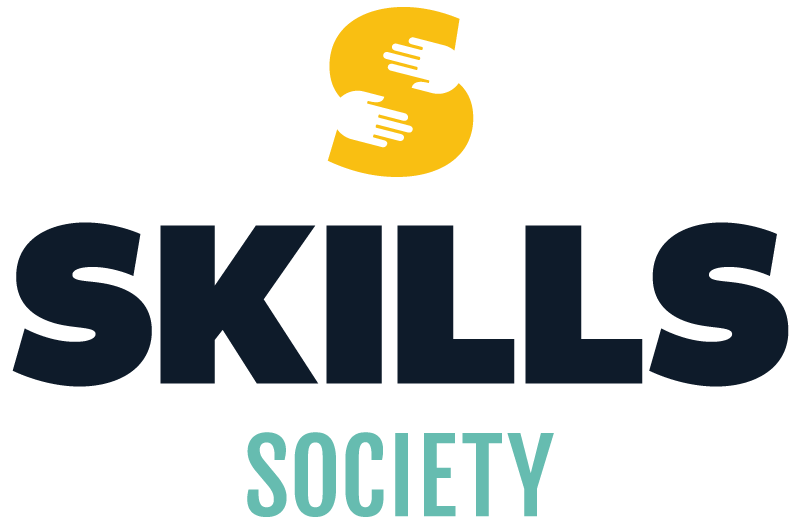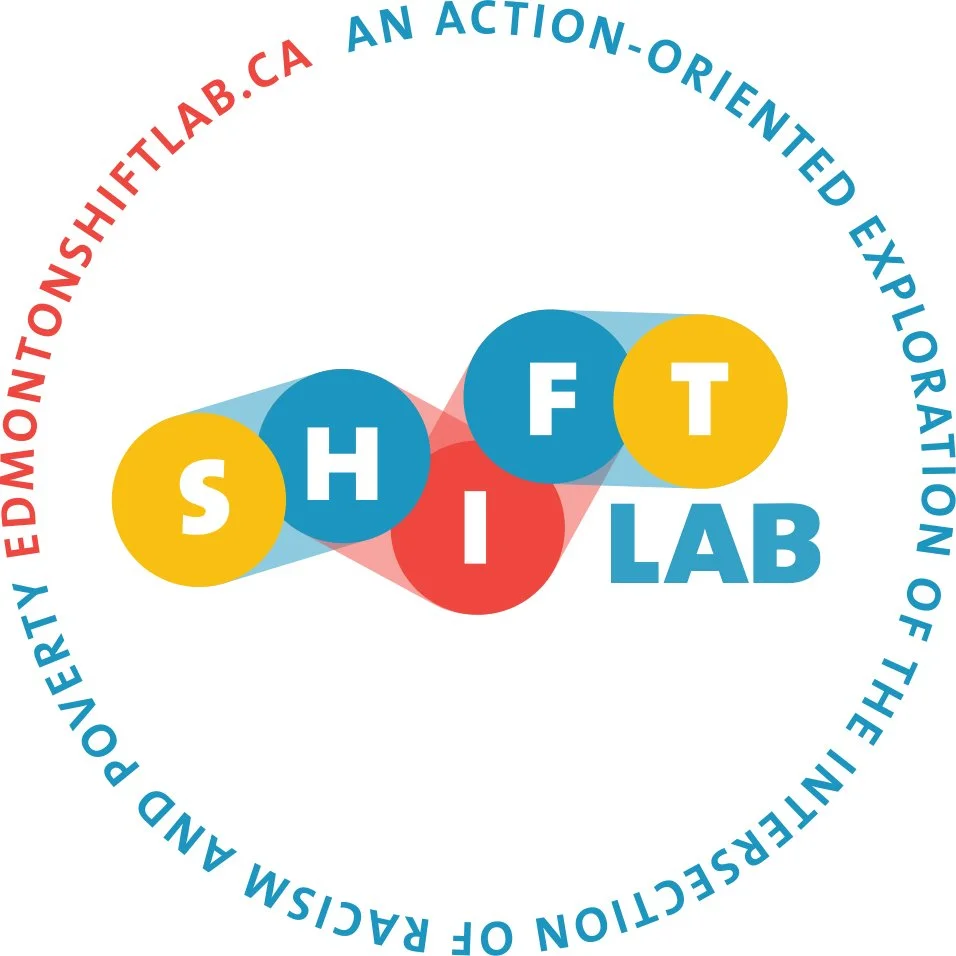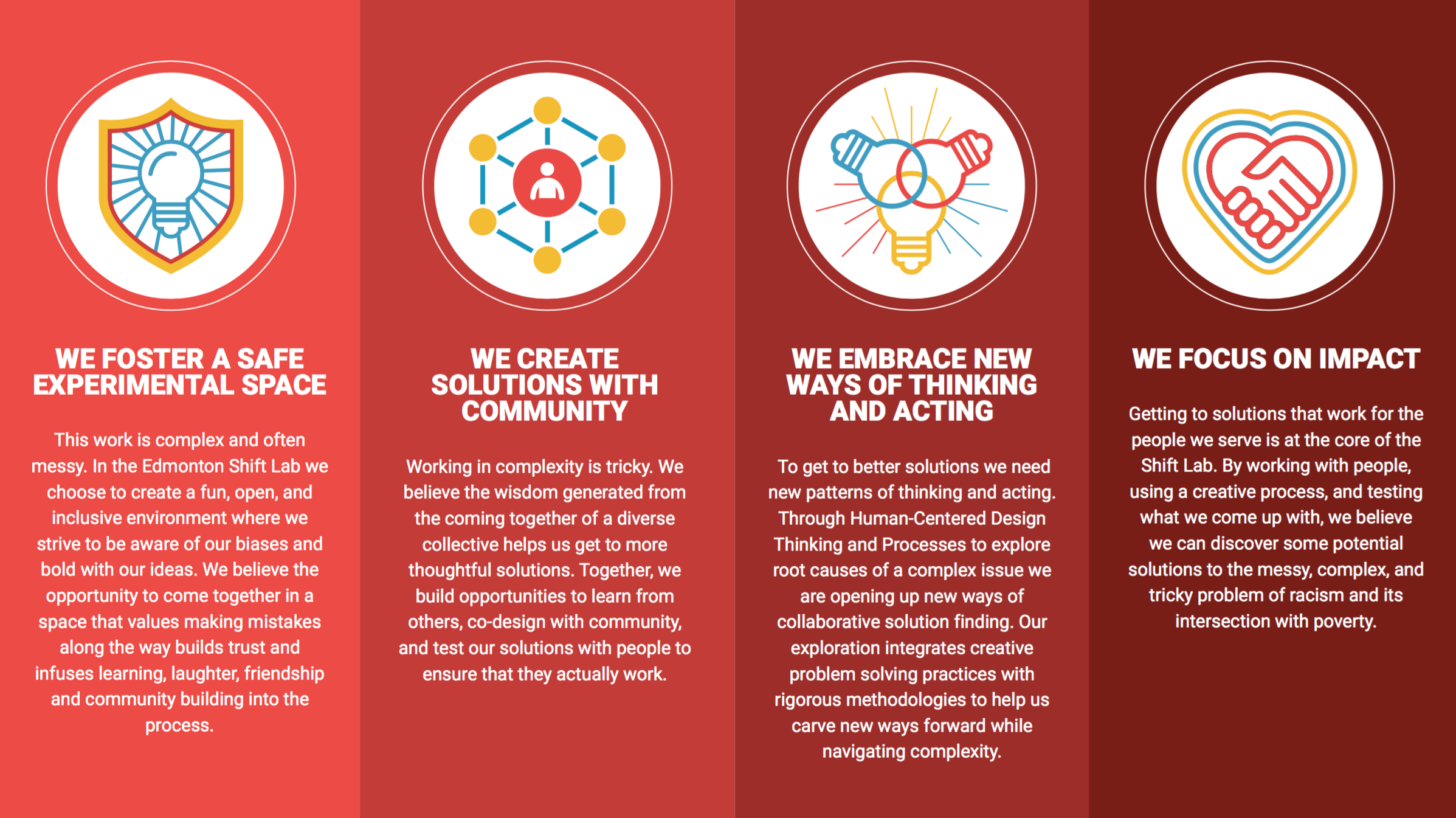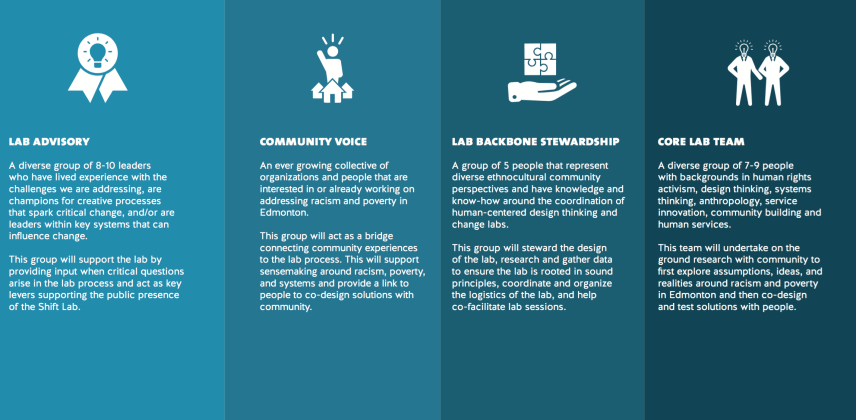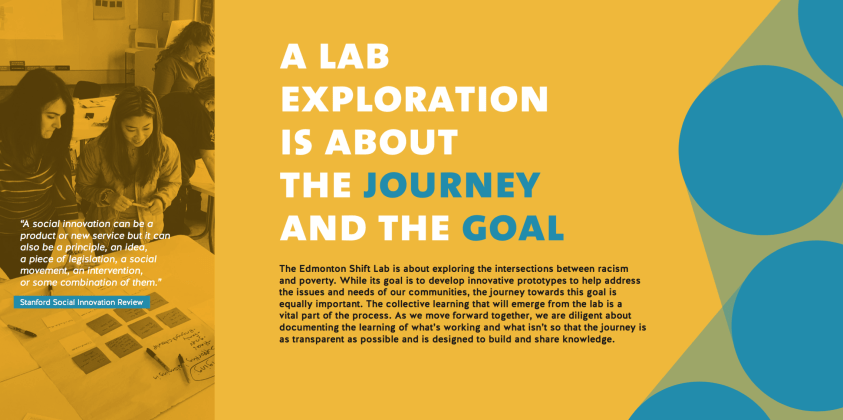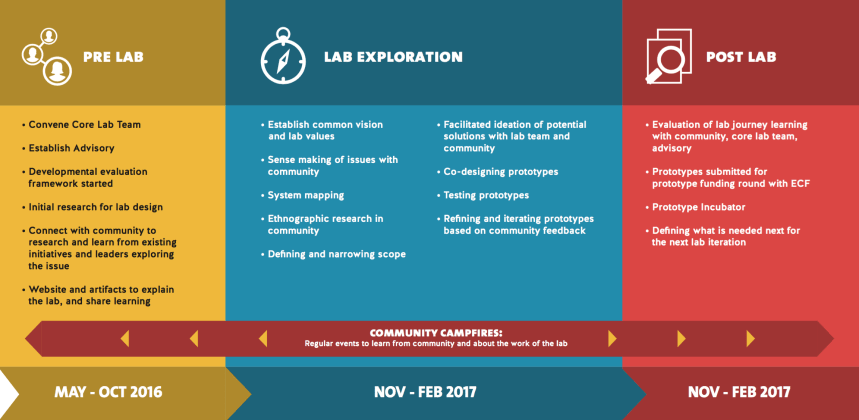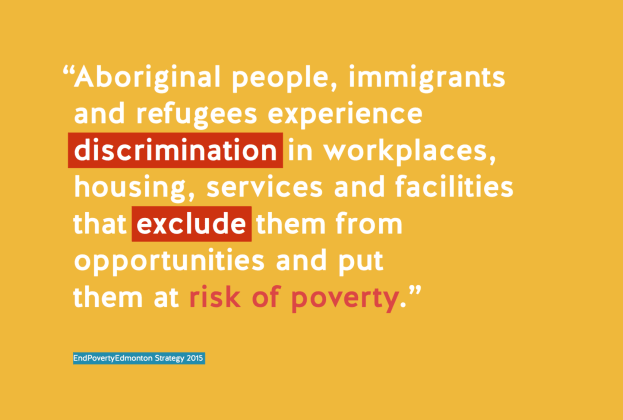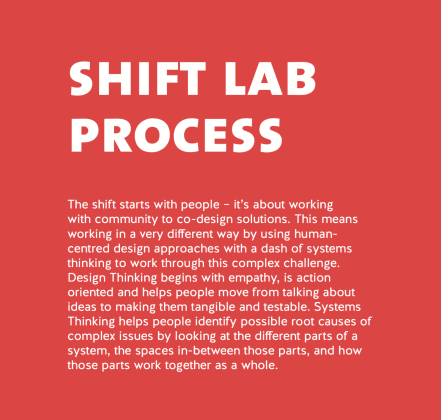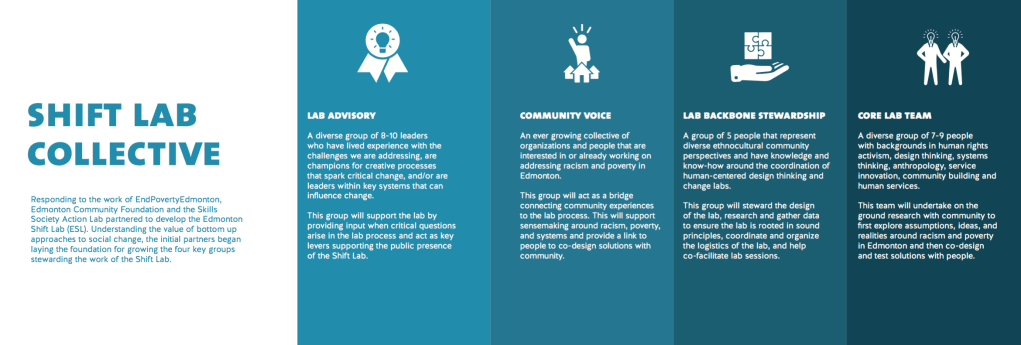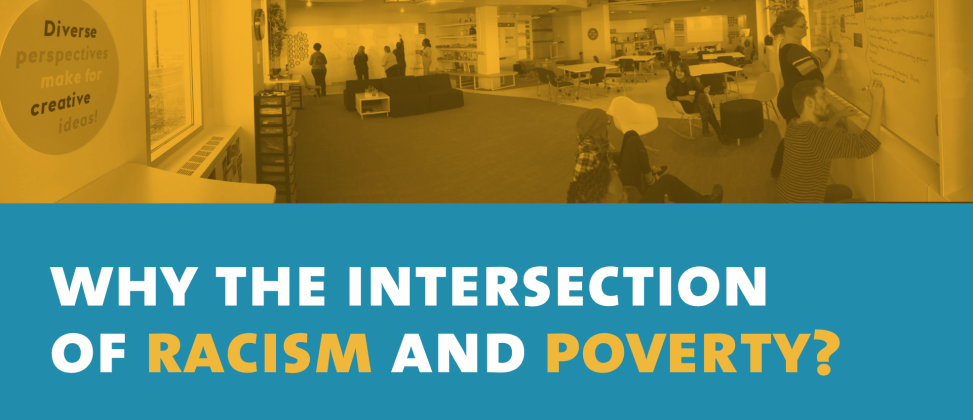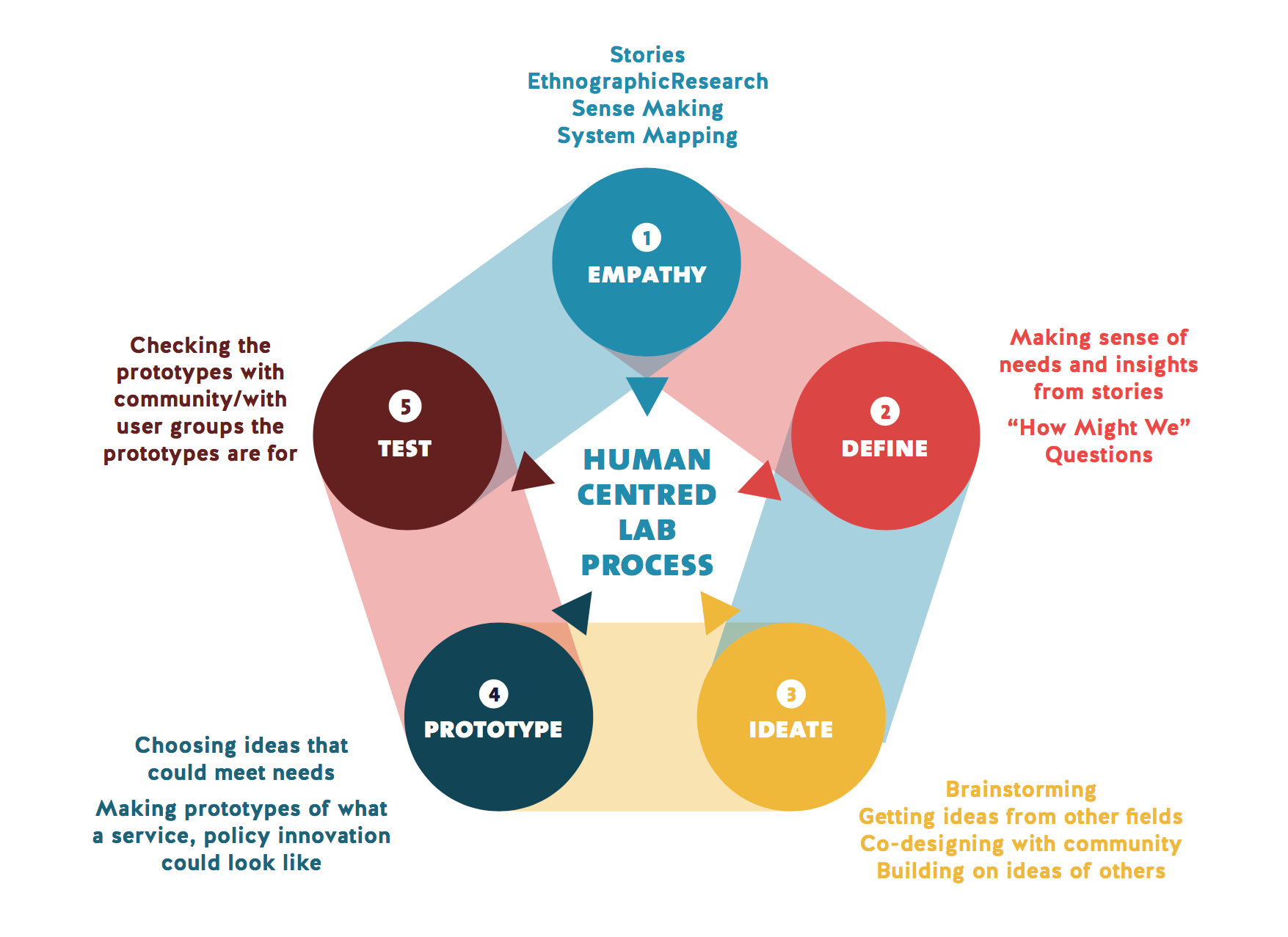Edmonton Shift Lab
Visit www.edmontonshiftlab.ca for all the info
What is Edmonton Shift Lab?
Responding to the work of EndPovertyEdmonton, Edmonton Community Foundation and the Skills Society Action Lab partnered to develop the Edmonton Shift Lab. The Edmonton Shift Lab is one of the first major social innovation labs coming out of our Action Lab. Understanding the value of bottom up approaches to social change, the initial partners began laying the foundation for growing the four key groups stewarding the work of the Shift Lab.
What is a Lab?
To aid the move from roundtable talks to action, a promising approach is emerging in the social innovation ecosystem. Often called a social innovation lab, the approach draws on the strengths, empathy, creativity, and wisdom of a collective to explore new ways of making progress on a complex challenge. These labs are guided by convening diverse perspectives on an issue, gaining insight from people with lived experience of a challenge, facilitated ideation, building prototypes of solutions, and testing them to see how they work on the ground with people. A lab creates a safe zone for a collective to explore, question assumptions, be bold, be agile enough to adapt as learning emerges and experiment with solutions. As evidence emerges of what prototyped solutions are working, solutions can be scaled and spread to impact systemic change. To help scale solutions systemically, key champions are needed who can open doors, steward policy shifts and build capacity for embracing change.
Guiding Principles
Some principles guide and underlie the approach of the Edmonton Shift Lab. These core principles are reminders to help the collective understand the mindset and conditions that lay the foundation for success. As the lab evolves new principles will emerge and be incorporated over time.
Shift Lab Process
The shift starts with people – it’s about working with community to co-design solutions. This means working in a very different way by using human- centred design approaches with a dash of systems thinking to work through this complex challenge. Design Thinking begins with empathy, is action oriented and helps people move from talking about ideas to making them tangible and testable. Systems Thinking helps people identify possible root causes of complex issues by looking at the different parts of a system, the spaces in-between those parts, and how those parts work together as a whole.
SHIFT IDEAS. SHIFT ATTITUDES. SHIFT SYSTEMS AND SHIFT INTO NEW WAYS OF SOLUTION FINDING WITH COMMUNITY.
